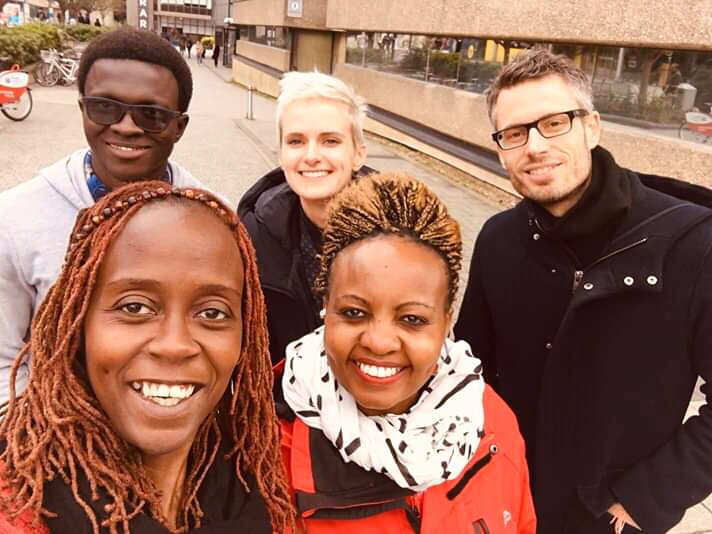
by jmusango | Mar 19, 2020 | News
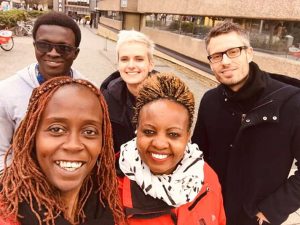 Researchers under the Africa-UK Trilateral Research Chair on Mainstreaming Gender for Energy Security in Poor Urban Environments (GENS) participated in a quintessential and synergizing workshop between the 9-13 March 2020 at the College of Engineering, Design and Physical Sciences, Brunel University London. The attendance of the workshop was graced with the Chairholder, Prof Josephine Kaviti Musango from Stellenbosch University, the Principal Investigators in the Trilateral Research, Dr Fabrizio Ceschin of Brunel University London, and Dr Amollo Ambole from the University of Nairobi. Also present was Dr Aine Petrulaityte of Brunel University London and Dr Benjamin Batinge from Stellenbosch University, both postdoctoral research fellows in GENS.
Researchers under the Africa-UK Trilateral Research Chair on Mainstreaming Gender for Energy Security in Poor Urban Environments (GENS) participated in a quintessential and synergizing workshop between the 9-13 March 2020 at the College of Engineering, Design and Physical Sciences, Brunel University London. The attendance of the workshop was graced with the Chairholder, Prof Josephine Kaviti Musango from Stellenbosch University, the Principal Investigators in the Trilateral Research, Dr Fabrizio Ceschin of Brunel University London, and Dr Amollo Ambole from the University of Nairobi. Also present was Dr Aine Petrulaityte of Brunel University London and Dr Benjamin Batinge from Stellenbosch University, both postdoctoral research fellows in GENS.
The team worked on driving GENS overall objective, setting timelines for specific tasks, clarifying institutional roles, integrating the different work packages, and building the capacity of the team to co-design to achieve the project goals. They also toured the Design Department to witness some of the tools and equipment the students use to design prototype for their projects.
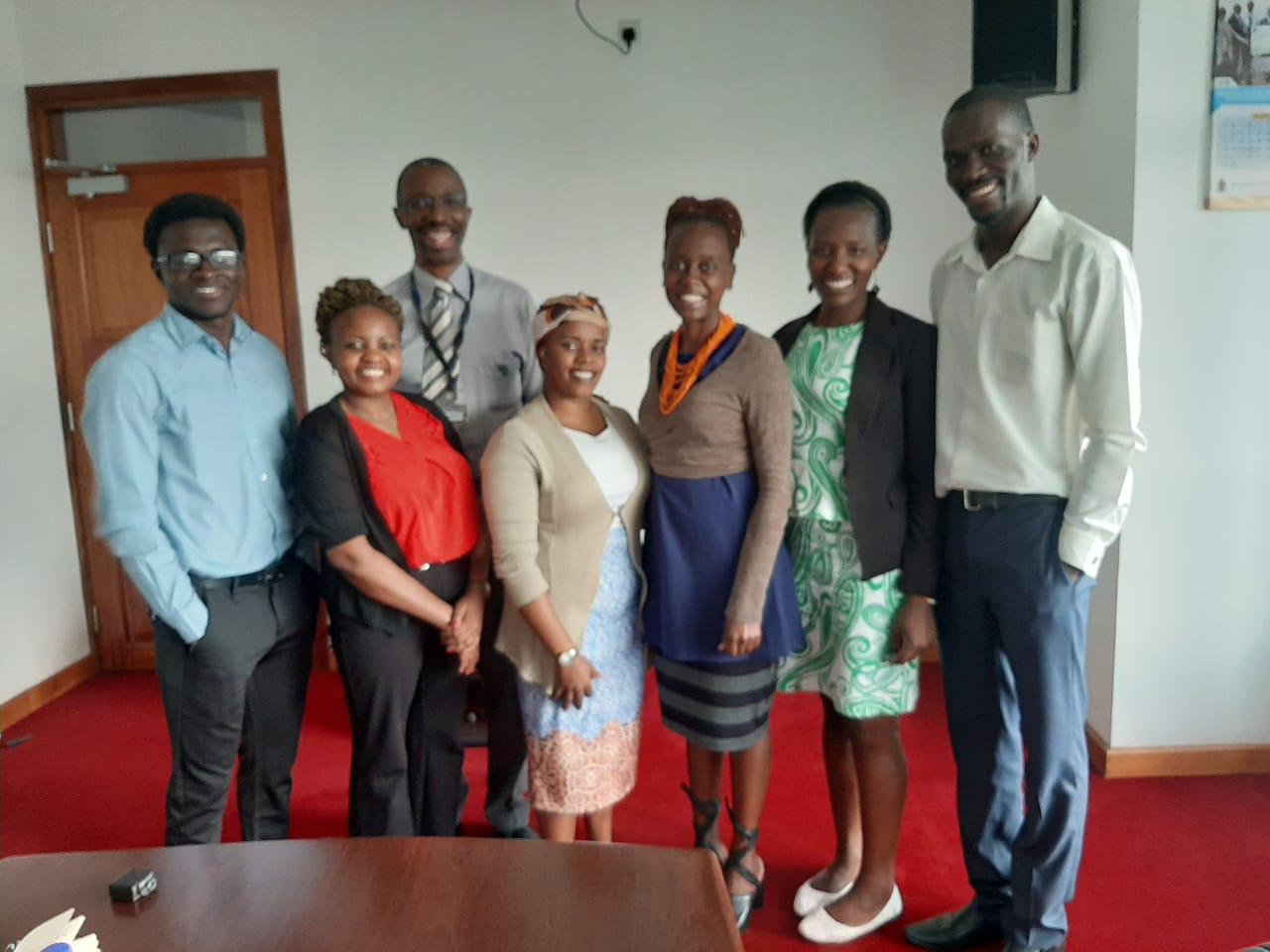
by jmusango | Dec 3, 2019 | News
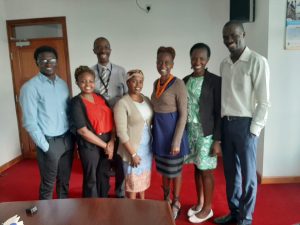
Photo (left to right): Dr Benjamin Batinge, Prof Josephine Musango, Prof Madara Ogot, Peris Njoroge, Christer Anditi, Douglas Logedi.
The GENS Trilateral Research Team had a meeting with Prof Madara Ogot, Deputy Vice Chancellor: Research innovation and Enterprises, University of Nairobi, on 29 November 2019.
The team discussed with Prof Ogot about the status of the GENS research activities since the launch on 10 October 2019, ongoing GENS activities, opportunities and next plans.
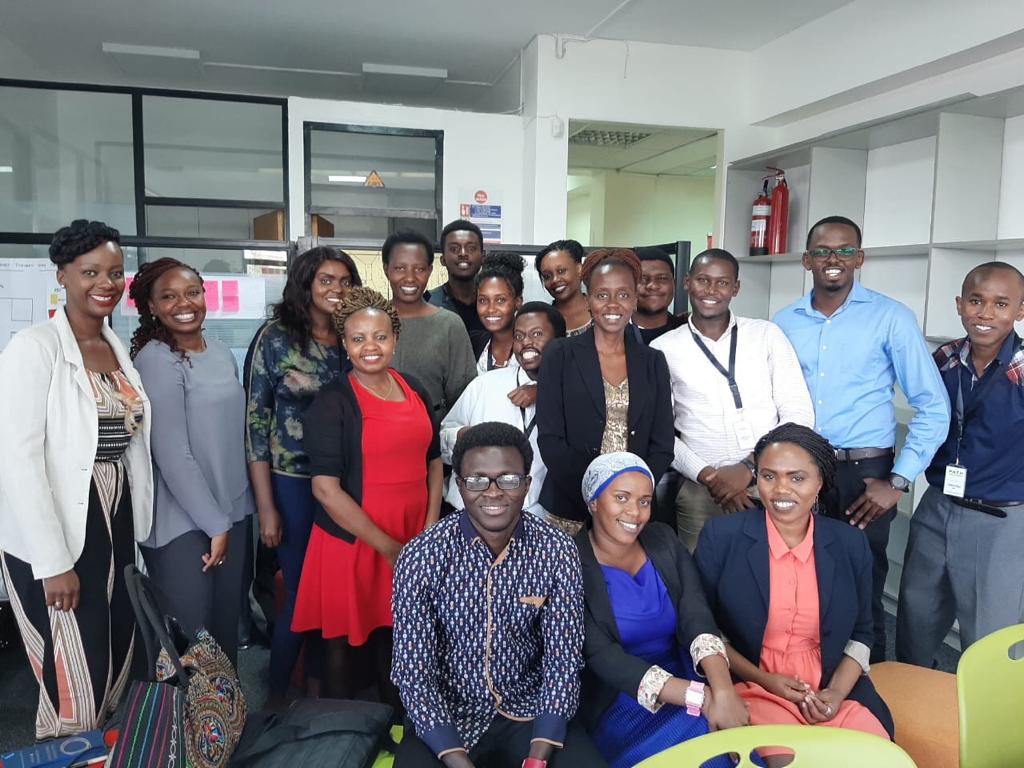
by jmusango | Nov 29, 2019 | News
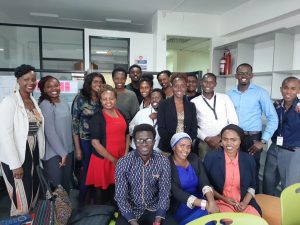
Photo 1: GENS Team at the PATH International, Nairobi
On 28 November 2019, GENS Trilateral Reseach Chair Team participated in the PATH International Presentations on the PATH Advocacy Learning Lab with 10 Masters Students from School of Arts and Design, University of Nairobi and PATH International Staff. The GENS team constituted of Dr Amollo Ambole, Prof Josephine Musango, Dr Benjamin Batinge, Christer Anditi, Peris Njoroge and Douglas Logedi.
The experience at the PATH Advocacy Learning Lab provided the GENS Team with an opportunity to engage with students generating crazy innovative outside the box ideas to deal with complex real world problems. Further, there were captivating discussions on the human-centred approach to CoDesigning and translating ideas into tangible solutions, as well as the processes of establishing a Living Lab.
GENS Trilateral Research Chair will be setting up two GENS Living Lab in the pilot case studies in Kenya and South Africa, as part of its objective of “exploring gender informed innovation and commercialisation opportunities in alternative energy technology and services”.
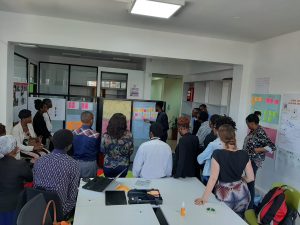
Photo 2: Participants listening to innovative ideas presented by Masters Students at School of Arts and Design, University of Nairobi
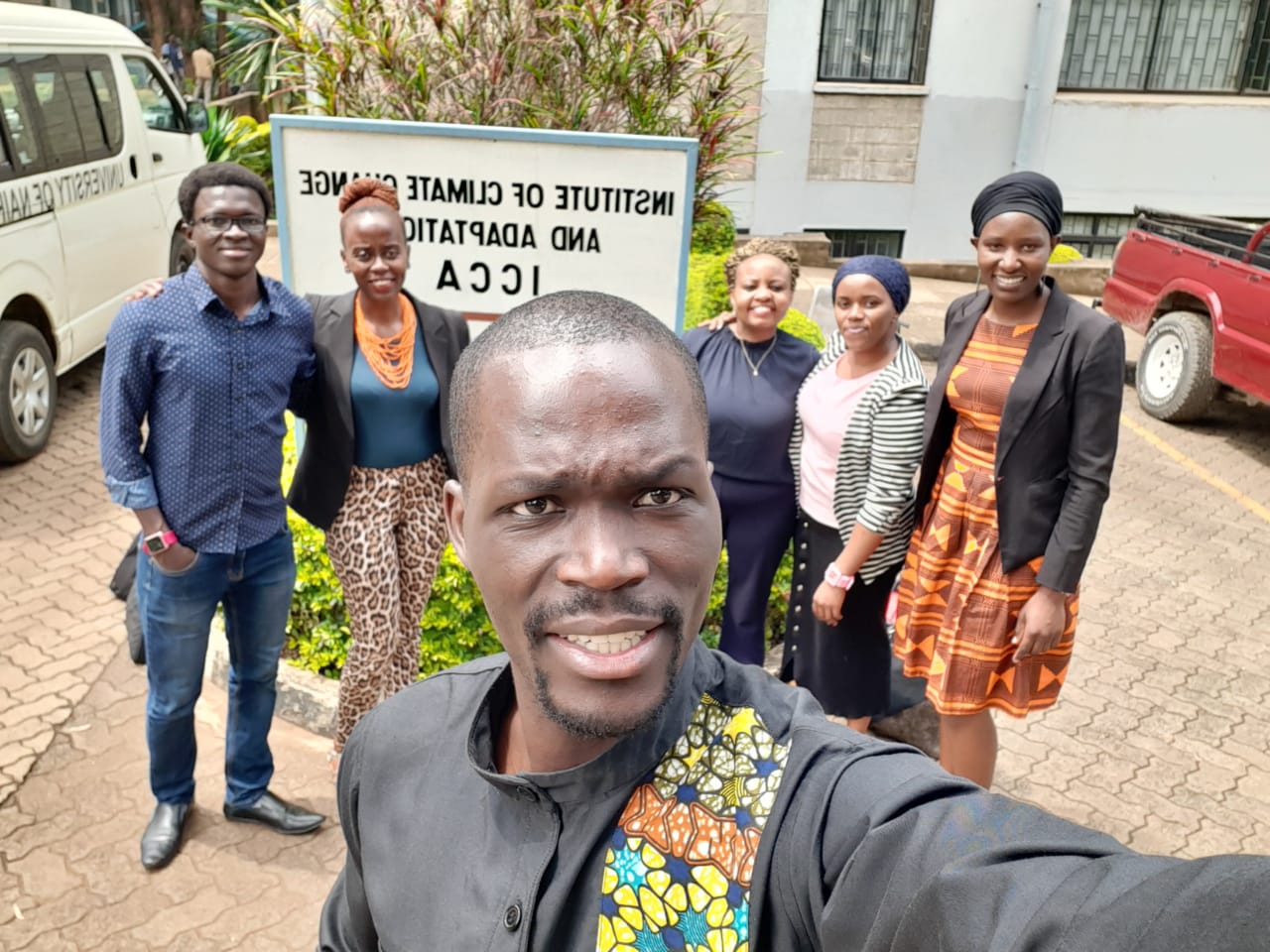
by jmusango | Nov 29, 2019 | News
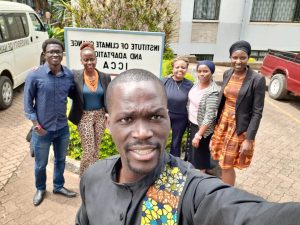
On November 27, 2019, the GENS team from University of Nairobi and Stellenbosch University jointly gave a presentation to a group of 23 students drawn from different fields under the Institute of Climate Change and Adaptation (ICCA) at University of Nairobi. The team constituted of Dr Amollo Ambole, Prof Josephine Musango, Dr Benjamin Batinge, Christer Anditi, Douglas Logedi and Peris Njoroge.
The presentation was engaging and showcased the transdisciplinary teamwork and synergy within the team. The energy shown by every member of the team and mastery of the subject was admirable. For a little over an hour, the team presented and engaged the students in a Q&A session for a further half an hour. The questions from the students showed a deep interest in the following areas:
(i) The application of the GENS Trilateral Research to a real Kenyan low-income nuclear or extended family.
(ii) How the GENS Living Lab will look like, how it will work, how stakeholders will be engaged and how it will be designed.
(iii) Practical energy solutions where focus is placed on both physical and economic access to energy as well as energy mobility.
(iv) The potential of involving the students from a sustainable point of view as part of the project team.
This was certainly a session to look forward to and a good vibrant audience to bounce ideas off of.
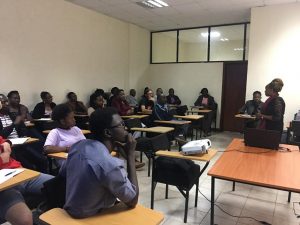
Photo: GENS Team presenting to Masters and PhD candidates at ICCA, University of Nairobi.

 Researchers under the Africa-UK Trilateral Research Chair on Mainstreaming Gender for Energy Security in Poor Urban Environments (GENS) participated in a quintessential and synergizing workshop between the 9-13 March 2020 at the College of Engineering, Design and Physical Sciences, Brunel University London. The attendance of the workshop was graced with the Chairholder, Prof Josephine Kaviti Musango from Stellenbosch University, the Principal Investigators in the Trilateral Research, Dr Fabrizio Ceschin of Brunel University London, and Dr Amollo Ambole from the University of Nairobi. Also present was Dr Aine Petrulaityte of Brunel University London and Dr Benjamin Batinge from Stellenbosch University, both postdoctoral research fellows in GENS.
Researchers under the Africa-UK Trilateral Research Chair on Mainstreaming Gender for Energy Security in Poor Urban Environments (GENS) participated in a quintessential and synergizing workshop between the 9-13 March 2020 at the College of Engineering, Design and Physical Sciences, Brunel University London. The attendance of the workshop was graced with the Chairholder, Prof Josephine Kaviti Musango from Stellenbosch University, the Principal Investigators in the Trilateral Research, Dr Fabrizio Ceschin of Brunel University London, and Dr Amollo Ambole from the University of Nairobi. Also present was Dr Aine Petrulaityte of Brunel University London and Dr Benjamin Batinge from Stellenbosch University, both postdoctoral research fellows in GENS.








